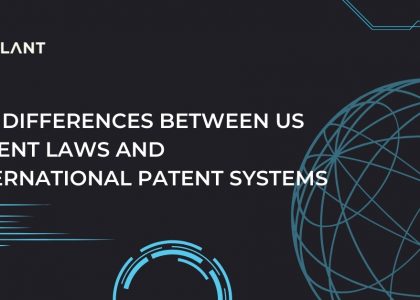Patent pools are a valuable asset for companies. They provide a way to share knowledge and technology, making it easier for businesses to work together. However, patent pools can also pose a risk for companies if they’re not used correctly.
A patent pool is a group of companies that agree to pool their patents and use them jointly. This eliminates the need to file multiple patent applications, saving time and money. The aim of a patent pool is to share technology and offer products as part of a single offering.
Until now, patent law has been based on a firmly established set of rules, which gives inventors the confidence to take their inventions to market. But that’s starting to change as companies increasingly wield patents as weapons against one another. The recent issue of Apple suppliers paying millions of dollars in licensing fees for technology they acquired from other companies illustrates the ever-growing power of patent pools.
IP attorneys and business owners know that patent pools present unique opportunities and also threaten companies with expensive lawsuits. Understanding the different facets of a patent pool can help you navigate these waters cautiously.
Why patent pools are best for the business?
Here are five reasons why patent pools may be a good idea for your business:
- They can reduce litigation costs by aggregating multiple patents into a single pool.
- A patent pool can provide a single point of contact for licensees, which can save time and money.
- A patent pool can tie up potential competitors while your patented technology is still protected by the agreement.
- A patent pool can increase the value of your patents by increasing the number of potential licensees.
- A well-run patent pool can help build a reservoir of goodwill that will protect your business in the future.
What are the types of patent pools?
Patent pools are of two types: a.) an open pool and, b.) a closed pool.
- An open pool: If other patent owners’ patents satisfy certain requirements, an open pool invites them to join the pool. Open patent pools are frequently outsourced to expert management firms, including joint ventures formed specifically to handle the patent pool administration.
Example- The patent pools for ATSC, MPEG-2, MPEG-4, and other formats are managed by MPEG-LA, while the patent pools for MPEG and RFID are managed by Sisvel. These management firms are in charge of keeping the patent pool up to date, adding new patent owners who satisfy the requirements, and settling license costs with third-party licensees and coordinating with the patent owners.
- A closed pool: The closed pool consists of a number of patent owners, one of whom is assigned the responsibility of providing pooled patents license to third parties on their collective behalf. A closed pool does not include additional patent owners.
Example- The licensing agency for a pool of patents from Philips Corporation related to the recordable CD standard was Philips Corporation.
Benefits of Patent Pools:
When a patent pool operates as designed, it promotes originality among businesses while reducing the likelihood of legal problems arising from the implementation of other protected ideas. Here are some benefits of Patent Pools.
- A productive pool enables inventors of any kind to avoid the need to construct costly licensing frameworks, with income supporting innovation instead. There would be less creativity without this incentive. Furthermore, implementers will sell fewer products if there is less innovation.
- Implementers are urged to take up new technologies by the provision of a single license to a broad range of patents held by numerous entries, secure in the knowledge that they will have access to vital intellectual property at a fixed and transparent cost.
- Innovations are encouraged and supported by the pool revenue that innovators get.
- The proliferation of standards established by standard development organizations (SDOs) is addressed by the pool concept. These bring together innovators from various businesses, and research organizations to create the greatest and most cutting-edge technology solutions, which are frequently only possible through cooperation.
- The incidence of products protected by several patents has increased as a result of contemporary technological advancements and improved inventiveness. The most successful instance is a smartphone, which not only makes conversation possible but also offers other features like internet access, email, photography, audio and video entertainment, and data storage.
- Pool licence terms are often open and routinely released so that implementers are informed of the IP costs of incorporating a licensed technology into their products. Pools also typically make it clear that any grant-back obligations, if necessary, are on conditions that guarantee an adequate return to licensees in order to prevent harming incentives for innovation.
By allowing third parties to participate into a single agreement rather than negotiating separate licensing agreements with each business, patent pool agreements can reduce the transaction costs for them.
To lower the expense of managing patents, preventing patents, and monetizing the inventions, businesses establish patent pools. As a result, many businesses can make use of one or more patents in the patent pool. The businesses can collaborate to make the patent accessible and use it for profit. It should be noted that many nations have particular competition laws in place to combat price fixing and market monopolization. As a result, patent pooling should be handled carefully to make sure the businesses adhere to the law.
Conclusion
A patent pool can be beneficial if it’s used correctly. However, it’s important to understand the different facets of a patent pool in order to make sure it’s effective. It’s also important to monitor the members of the pool carefully in order to avoid infringements.
Increased innovation and consumer welfare are not only a result of successful patent pools; efficient access to patented technologies given by pools and a just return to innovators have also contributed significantly. Get deep in-sight in the benefits of patent pools from the experts available at Brealant TM. The intellectual property experts will provide you with technology-driven solutions and help you with all the aspects of IP security. Trust the well-renowned IP services provider firm, visit the official website to know more.










